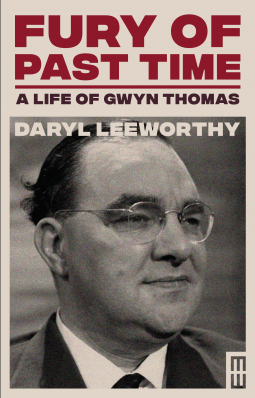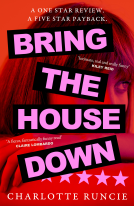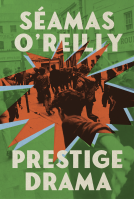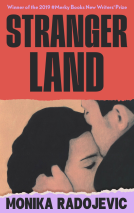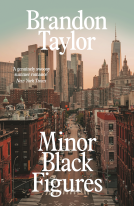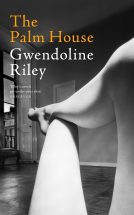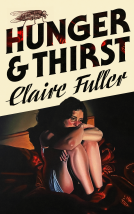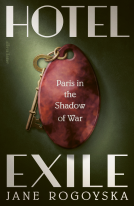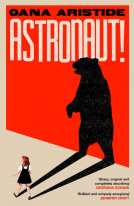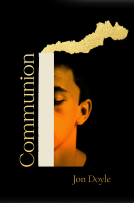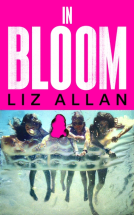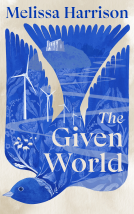Please wait... This may take a moment.
Fury of Past Time
A Life of Gwyn Thomas
This title was previously available on NetGalley and is now archived.
Pub Date
2 Jan 2023
| Archive Date
17 Nov 2022
Description
Gwyn Thomas was born, the last of twelve children, into a
Rhondda mining family in 1913. After a childhood marked
by the strikes of the 1920s, he went off to study Spanish at
Oxford University and in Madrid, where he met the poet
Federico García Lorca and witnessed the turmoil which
would lead to the Spanish Civil War. On his return, amidst
the economic mire of the 1930s and his own burgeoning
teaching career in Barry in the 1940s, he picked up his pen
and began to write. For more than forty years, until his death
in 1981, as novelist, screenwriter, master of the short story,
and prizewinning playwright, Gwyn Thomas delivered
compelling and comedic portraits of his world of South
Wales. His creative genius earned enduring fame on both
sides of the Atlantic and on both sides of the European Cold
War divide. As a provocative and insightful broadcaster, he
embraced the possibilities of radio and television, whilst
leaving his hosts and guests alike in fits of knowing laughter.
This landmark biography, enriched with unrivalled access to
private papers and international archives, tells the remarkable
story of one of modern Wales’s greatest literary voices.
Gwyn Thomas was born, the last of twelve children, into a Rhondda mining family in 1913. After a childhood marked by the strikes of the 1920s, he went off to study Spanish at Oxford University and in...
Description
Gwyn Thomas was born, the last of twelve children, into a
Rhondda mining family in 1913. After a childhood marked
by the strikes of the 1920s, he went off to study Spanish at
Oxford University and in Madrid, where he met the poet
Federico García Lorca and witnessed the turmoil which
would lead to the Spanish Civil War. On his return, amidst
the economic mire of the 1930s and his own burgeoning
teaching career in Barry in the 1940s, he picked up his pen
and began to write. For more than forty years, until his death
in 1981, as novelist, screenwriter, master of the short story,
and prizewinning playwright, Gwyn Thomas delivered
compelling and comedic portraits of his world of South
Wales. His creative genius earned enduring fame on both
sides of the Atlantic and on both sides of the European Cold
War divide. As a provocative and insightful broadcaster, he
embraced the possibilities of radio and television, whilst
leaving his hosts and guests alike in fits of knowing laughter.
This landmark biography, enriched with unrivalled access to
private papers and international archives, tells the remarkable
story of one of modern Wales’s greatest literary voices.
Advance Praise
Daryl Leeworthy has performed a service to theatre's history that fills a gap. His new biography of Gwyn Thomas- following on from his earlier book on Elaine Morgan- is a richly researched, elegantly written and impeccably edited biography of weight. Within its 447 pages chapter eight runs to ten thousand words. It can be read as a stand-alone essay in its own right on the theatre of Gwyn Thomas. Thomas wrote theatre that was a hit at the Royal Court. Adam Somerset Theatre Wales
Daryl Leeworthy has performed a service to theatre's history that fills a gap. His new biography of Gwyn Thomas- following on from his earlier book on Elaine Morgan- is a richly researched, elegantly...
Advance Praise
Daryl Leeworthy has performed a service to theatre's history that fills a gap. His new biography of Gwyn Thomas- following on from his earlier book on Elaine Morgan- is a richly researched, elegantly written and impeccably edited biography of weight. Within its 447 pages chapter eight runs to ten thousand words. It can be read as a stand-alone essay in its own right on the theatre of Gwyn Thomas. Thomas wrote theatre that was a hit at the Royal Court. Adam Somerset Theatre Wales
Marketing Plan
Launch at Storyville Books in Pontypridd
Launch at Storyville Books in Pontypridd
Available Editions
| EDITION |
Other Format |
| ISBN |
9781914595196 |
| PRICE |
$40.00 (USD)
|
| PAGES |
250
|
Additional Information
Available Editions
| EDITION |
Other Format |
| ISBN |
9781914595196 |
| PRICE |
$40.00 (USD)
|
| PAGES |
250
|
Average rating from 3 members
Readers who liked this book also liked:
Prestige Drama
Seamas O'Reilly
General Fiction (Adult), Literary Fiction
Transcription
Ben Lerner
General Fiction (Adult), Literary Fiction
Strangerland
Monika Radojevic
General Fiction (Adult), Literary Fiction
As If
Isabel Waidner
General Fiction (Adult)
The Palm House
Gwendoline Riley
General Fiction (Adult), Literary Fiction
Astronaut!
Oana Aristide
General Fiction (Adult), Literary Fiction
Communion
Jon Doyle
General Fiction (Adult), Literary Fiction
In Bloom
Liz Allan
General Fiction (Adult), Literary Fiction, New Adult
The Given World
Melissa Harrison
General Fiction (Adult), Outdoors & Nature
